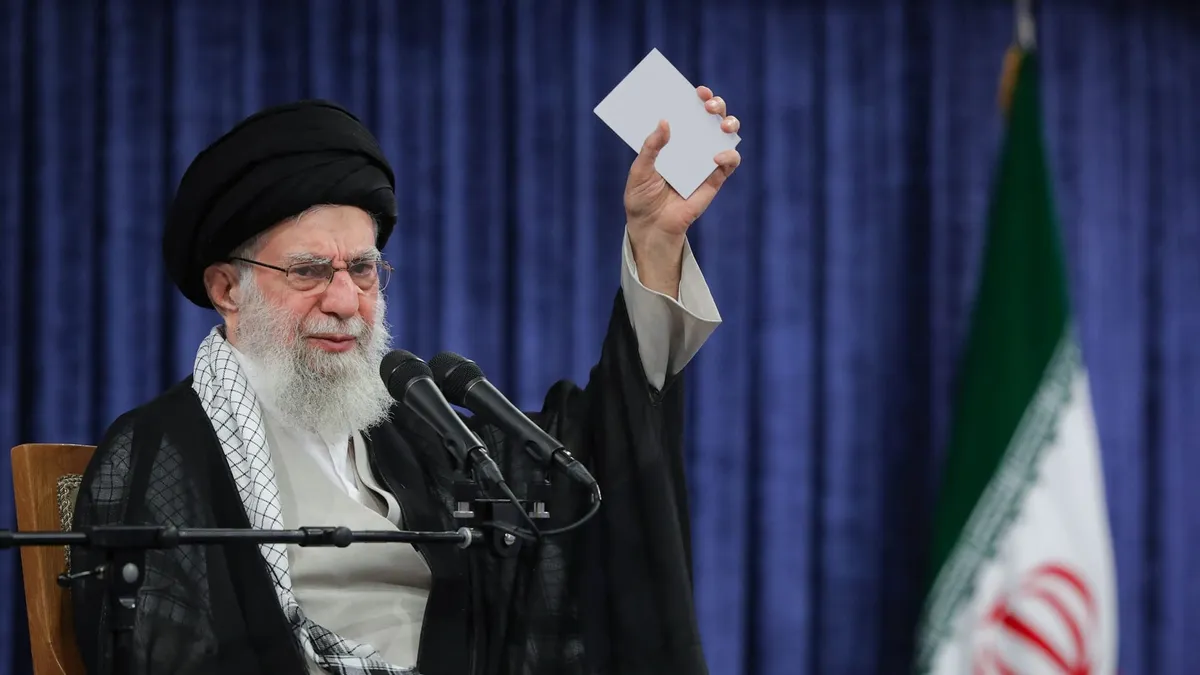
Iran's Supreme Leader, Ayatollah Ali Khamenei, issued a stark warning to the United States on Wednesday, threatening the nation with irreparable damage should Washington decide to execute a military strike against Iran. Khamenei emphasized that any American military intervention would undoubtedly lead to serious repercussions, stating, "Any military entry will result in harm that they cannot recover from," according to a report by NBC News.
In his remarks, Khamenei asserted that the potential involvement of the U.S. in Iran would "100% backfire," predicting that the consequences for America would be far more severe than any damage Iran might sustain. His statements come amid rising tensions following a recent escalation of hostilities, which saw missile exchanges between Iran and Israel after an attack by the Jewish state aimed primarily at Iran’s nuclear program.
The International Atomic Energy Agency confirmed on Wednesday that two nuclear centrifuge production facilities in Iran were targeted during the Israeli attacks. In a related development, former President Donald Trump warned on his Truth Social platform that the patience of the U.S.—a long-standing ally and arms supplier of Israel—was running thin. He mentioned Khamenei as an "easy target," suggesting a military option could be on the table, although he clarified that the intention was not to harm civilians or American soldiers, but rather to push for Tehran's unconditional surrender.
In response, Khamenei rejected the idea of surrendering, asserting that the Iranian people cannot be coerced into capitulation. This exchange highlights the ongoing power struggle, particularly as the current U.S. administration, under Trump, attempts to negotiate a deal regarding Iran's nuclear program—negotiations that have yet to yield any significant outcomes.
Despite the U.S. government maintaining that it has not been directly involved in the recent hostilities, Trump's latest comments have intensified speculation regarding a potential change in strategy, including possible direct military action against Iranian targets. Khamenei remarked, "From the beginning, it was suspected that America was involved, and now, with their own officials' words, this suspicion is growing stronger."
The situation has become increasingly complicated following the October 2023 attack on Israeli territory by the Iran-backed Palestinian militant group Hamas. In the wake of this attack, Israel has accused Iran of orchestrating various regional offensives through its network of allied groups, which includes Hezbollah in Lebanon and the Houthis in Yemen. Tehran has consistently denied these allegations.
In the midst of the escalating conflict, Israel’s Defense Minister, Israel Katz, commented on social media, suggesting that "a tornado passes over Tehran," implying that the regime could collapse under pressure. Concurrently, leaders from the Group of Seven (G7)—the world's most advanced economies—have labeled Iran as a primary source of instability and terrorism in the Middle East, collectively calling for a broader de-escalation of hostilities.
During the G7 summit, Germany's Chancellor Friedrich Merz remarked that Israel is performing "the dirty work for the Western world," a statement that underscores the complex geopolitical dynamics at play in the region.
As the situation develops, the world watches closely, with concerns mounting over the potential for further military escalation and its implications for regional and global stability.